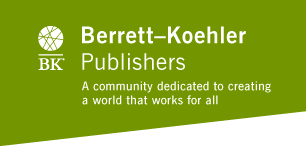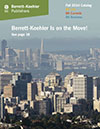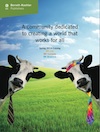About the Author
Bernard Lietaer
Bernard Lietaer is one of the most knowledgeable people in the world about money and financial systems.
Bernard has been a star since 1969, when he received an MBA from MIT and Time magazine selected him as one of the top-10 graduates of U.S. business schools. His post- graduate thesis, entitled Financial Management of Foreign Exchange, was published by MIT Press in 1970 and received wide attention in the financial world. In his thesis, he discussed applying nonlinear programming to global currency management for multinational corporations. This was considered the first book to explore the applications of systems theory to international finance. It described how to optimize currency management for corporations working in a large number of countries and currencies, and included the techniques to deal with floating exchanges, at the time a rare occurrence limited to some exotic currencies in Latin America. A major U.S. bank negotiated exclusive rights to Bernard’s approach prompting him to start a new career and move to South America. He developed, for the largest mining company in Peru, a new system for worldwide allocation of mining resources, which ended up being used to optimize two- thirds of all foreign exchange earnings of Peru. Subsequently, he wrote the only book (published in 1979) to foretell the Latin American debt crisis that exploded as he predicted in the early 1980s.
Later, Bernard was widely credited with being one of the principal architects of the euro, the single European currency. This came about after he accepted a job offer as the head of the Organization and Computer Department at the Central Bank in Belgium. Because Belgium received the chairmanship of the European Currency Unit (the ECU), his first project at the Bank was the design and implementation of the convergence system, which evolved into the euro in January, 1999. During this period, Bernard was appointed president of the electronic payment system in Belgium, considered the most inclusive and cost- effective payment system in the world. In 1987, Bernard left the Central Bank and cofounded one of the first large- scale off- shore currency trading funds. During his three- year tenure as its general manager and currency trader, from 1987 to mid- 1991, the largest of these funds (Gaia Hedge II) was rated by the Micropal survey as the top performer among 75 currency hedge funds and among all 1,800 offshore funds worldwide. In 1990, Business Week named Bernard “the world’s top trader.”
In the mid- 1990s, Bernard changed his focus. He has spent the past two decades as one of the world’s leading designers and implementers of cooperative currencies. He has consulted with communities, governments, banks, and businesses around the globe. He has written several books on the topic of money, including the classic, The Future of Money, along with hundreds of articles and interviews. One of Bernard’s current projects in terms of new currencies is the Trade Reference Currency, which is a privately- issued, cooperative, global reference currency that is backed by a noninflationary, standardized basket of the dozen most important commodities and ser vices in the global market. It is poised to drastically change barter and counter trade along with creating stability and predictability in the fi nancial and business sectors by providing a robust standard of value for international trade. Most importantly, it will resolve the current conflict between short- term financial interest and long- term sustainability thereby providing, for the first time since the gold- standard days, an international standard of value that is inflation- resistant. This mechanism would work in parallel with national currencies. Currently, Bernard is a Research Fellow at the Center for Sustainable Resources of the University of California at Berkeley. He is also Visiting Professor at the Finance University of Moscow.
He is a member of the Club of Rome; a Fellow at the World Academy of Arts and Sciences, the World Business Academy, and the Euro pe an Academy of Sciences and Arts; and a founding member of the Global Futures Forum. He currently resides in his native Belgium. He is fluent in English, French, Spanish, German, and Dutch, and reads Latin and Greek.
 0 items in cart
0 items in cart









